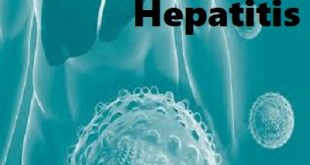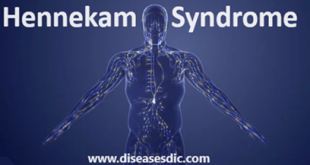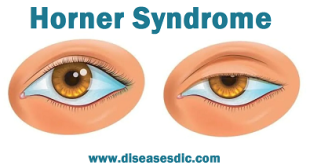Introduction
HIV is a virus that attacks the immune system, which is our body’s natural defense against illness. The virus destroys a type of white blood cell in the immune system called a T-helper cell, and makes copies of itself inside these cells. T-helper cells are also referred to as CD4 cells.
The virus is actually not one, but several different viruses in the class of Retroviridae and the genus Lentivirus. The species differs and there is a larger list of subtypes. There are two major types: HIV1 and HIV2 – HIV1 is thought to originate from chimpanzees and gorillas in western Africa; HIV2 originates from sooty mangabeys (another ape) found in Senegal and Ghana. HIV1 is the more deadly and is the cause of the AIDS pandemic and can be divided into the M, N, O, and P subgroups, but HIV2 is also known to cause AIDS.
Structure of HIV
As HIV destroys more CD4 cells and makes more copies of itself, it gradually breaks down a person’s immune system. This means someone living with HIV, who is not receiving treatment, will find it harder and harder to fight off infections and diseases. HIV spreads through bodily fluids that include:
- Blood
- Semen
- Vaginal and rectal fluids
- Breast milk
Replication process of HIV viruses in human body
- The virus infects the body’s macrophages, dendritic cells, and T-cells, viz. most often the CD4+ lymphocytes, by attaching itself to them via its gp120 protein to the e.g.
- T-cell’s CD4+ protein. The CCR-5 protein then induces the fusion of the membranes. An inherent property of lentiviruses is that they have a single-strand RNA strand, not DNA, and this strand is injected when the cytoplasm’s merge as the HIV’s membrane fuses with that of the T-cell.
- The RNA is converted into DNA by reverse transcriptase and is inserted into the T-cell’s genome strand using DNA integrase. Hence, the virus is literally replacing part of the human body.
- The infected T-cell now produces HIV RNA and amino acids that form new HIV viruses and their protein coats. These viruses then spread throughout the body the infection rate increases.
- The T-cells then die, causing AIDS as the immunodeficiency occurs when the majority of T-cells are denatured. At the replication of the viral RNA, which happens 10 billion times per day, there is a chance of mutation of one nucleotide per 9 200 nucleotides, meaning resistance could develop.
- The virus is then spread via blood transfusions, sexual intercourse, or during birth (i.e. mother-to-child transmission, MTCT).
- Everyday activities such as sharing food and water, kissing, shaking hand, or using the same toilet are not factors that spread the condition.
- AIDS occurs when the body catches a secondary, an opportunistic, disease due to the decreased immune defense strength.
Stages involved
HIV advances in stages, overwhelming your immune system and getting worse over time. The three stages of HIV infection are:
1. Acute HIV infection
The first few weeks after infection is called the acute infection stage. During this time the virus rapidly reproduces. Your immune system responds by producing HIV antibodies. Many people experience temporary flu-like symptoms during this stage. Even without symptoms, HIV is highly contagious during this time. Some of the symptoms during this stages includes:
- Fever (raised temperature)
- Body rash
- Sore throat
- Swollen glands
- Headache
- Upset stomach
- Joint aches and pains
- Muscle pain.
2. Clinical latency
After the first month or so, HIV enters the clinical latency stage. This stage can last from a few years to a few decades. Progression can be slowed with antiretroviral therapy. Some people have symptoms. Many people do not, but it’s still contagious. As the virus progresses, you’re left with fewer T cells. This makes you more susceptible to disease, infection, and infection-related cancers.
3. AIDS (acquired immunodeficiency syndrome)
Without treatment, HIV is likely to advance to AIDS. At that point, the immune system is too weak to fight off life-threatening disease and infection. Untreated, life expectancy with AIDS is about three years.
AIDS is a disease caused by HIV. It’s the most advanced stage of HIV. But just because you have HIV doesn’t mean you’ll develop AIDS. HIV destroys T cells called CD4 cells. These cells help your immune system fight infections. Healthy adults generally have a CD4 count of 800 to 1,000 per cubic millimeter. If you have AIDS and your CD4 count falls below 200 per cubic millimeter, you will be diagnosed with AIDS.
You can also be diagnosed with AIDS if you have HIV and develop an opportunistic infection that is rare in people who don’t have HIV. AIDS weakens your immune system to the point where it can no longer fight off most diseases and infections. That makes you vulnerable to a wide range of illnesses, including:
- Pneumonia
- Tuberculosis
- Candidiasis
- Cytomegalovirus, a type of herpes virus
- Cryptococci meningitis
- Toxoplasmosis, an infection causes by a parasite
- Cryptosporidiosis, an infection caused by an intestinal parasite
- Cancer, including Kaposi’s sarcoma (KS) and lymphoma
- Kidney disease
Symptoms that you may have during this time can include:
- Weight loss
- Chronic diarrhea
- Night sweats
- A fever
- A persistent cough
- Mouth and skin problems
- Regular infections
- Serious illnesses or diseases
Historical view of HIV/AIDS
Researchers found the earliest case of AIDS in a blood sample of a man from the Democratic Republic of Congo. It’s said that the virus spread from chimpanzees to humans sometime before 1931, most likely during “bush meat trading.” While hunting chimpanzees, hunters would come in contact with animal blood.
Before the 1980s, researchers estimate that about 100,000 to 300,000 people were infected with HIV. The earliest case was confirmed in 1968, in Robert Rayford, a 16-year-old teenager, who never left the Midwest or received a blood transfusion. This suggests that AIDS may have been present in the United States before 1966.
But before AIDS was identified, the disease appeared as other immunodeficiency conditions like Pneumocystic carinii pneumonia (PCP) and Kaposi sarcoma (KS). A year after scientists identified AIDS they discovered the cause: HIV.
Epidemiology in worldwide
Since the beginning of the epidemic, more than 70 million people have been infected with the HIV virus and about 35 million people have died of AIDS. Globally, 36.7 million [30.8–42.9 million] people were living with AIDS at the end of 2016. An estimated 0.8% [0.7-0.9%] of adults aged 15–49 years worldwide are living with AIDS, although the burden of the epidemic continues to vary considerably between countries and regions. Sub-Saharan Africa remains most severely affected, with nearly 1 in every 25 adults (4.2%) living with AIDS and accounting for nearly two-thirds of the people living with AIDS worldwide.

Statistics on causes of HIV/AIDS
Causes or Possibilities of HIV/AIDS
Some of the ways AIDS is spread from person to person include:
- Having unprotected sex with an infected person. This is the most common route of transmission
- Sharing needles, syringes, and other items for injection drug use with an infected person
- Passing it on to an unborn child if the mother is HIV-positive
- Passing it on to a baby through breast milk if the mother is HIV-positive
- Being exposed to infected fluids, usually through needle sticks.
- Having a blood transfusion or organ and tissue transplant can also transmit the virus. But rigorous testing for HIV in blood ensures that this is very rare in the United States.
It’s theoretically possible, but considered extremely rare, for AIDS to spread via:
- Oral sex
- Being bitten by an infected person
- Contact between broken skin, wounds, or mucous membranes and AIDS-infected blood or fluids
AIDS does NOT spread through:
- Skin-to-skin contact
- Hugging, shaking hands, or kissing
- Air or water
- Eating or drinking items, including drinking fountains
- Saliva, tears, or sweat (unless mixed with blood from an infected person)
- Sharing a toilet, towels, or bedding
- Mosquitoes or other insects
Complications during HIV
- Tuberculosis
- Hepatitis
- Toxoplasmosis
- Sexually transmitted infections
- Liver or kidney damage
- Urinary tract infection
Testing and Screening of HIV (Diagnosis)
There are four main types of HIV test:
- Antibody Screening Tests: These tests check for a kind of protein that your body makes in response to the HIV infection, 2-8 weeks later. They’re also called immunoassay or ELISA tests.
- Antibody/Antigen Combination Tests: The CDC recommends these blood tests. They can detect HIV as soon as 20 days earlier than antibody screening tests. They check for HIV antigen, a protein called p24 that’s part of the virus that shows up 2-4 weeks after infection, as well as HIV antibodies. A rapid antibody/antigen test can give you results in 20 minutes.
- RNA Test: This looks for the virus itself and can diagnose HIV about 10 days after you’ve been exposed. It’s expensive, though, so it’s usually not the first test. But if you’re at high risk and you have flu-like symptoms, your doctor may want to use it.
- In-Home Test Kits: Two kits are available. One option is to prick your finger to get a small blood sample that you send to a lab. For the other, you’ll swab your upper and lower gums and test the sample in a vial. You get a result in 20 minutes.
- Western blot or indirect immunofluorescence assay
- HIV-1 nucleic acid test, which looks for the virus itself
Treating of HIV/AIDS
The classes of anti-HIV drugs include:
- Non-nucleoside reverse transcriptase inhibitors (NNRTIs). NNRTIs disable a protein needed by HIV to make copies of itself. Examples include efavirenz (Sustiva), etravirine (Intelence) and nevirapine (Viramune).
- Nucleoside or nucleotide reverse transcriptase inhibitors (NRTIs). NRTIs are faulty versions of building blocks that HIV needs to make copies of itself. Examples include Abacavir (Ziagen), and the combination drugs emtricitabine-tenofovir (Truvada), and lamivudine-zidovudine (Combivir).
- Protease inhibitors (PIs). PIs disable protease, another protein that HIV needs to make copies of itself. Examples include atazanavir (Reyataz), darunavir (Prezista), fosamprenavir (Lexiva) and indinavir (Crixivan).
- Entry or fusion inhibitors. These drugs block HIV’s entry into CD4 cells. Examples include enfuvirtide (Fuzeon) and maraviroc (Selzentry).
- Integrase inhibitors. These drugs work by disabling integrase, a protein that HIV uses to insert its genetic material into CD4 cells. Examples include raltegravir (Isentress), elvitegravir (Vitekta) and dolutegravir (Tivicay).
- Fusion Inhibitors: Fusion inhibitors are a new class of drugs that act against HIV by preventing the virus from fusing with the inside of a cell, preventing it from replicating. The group of drugs includes Enfuvirtide, also known as Fuzeon or T-20.
- Antiretroviral therapy (ART) is the use of AIDS medicines to treat HIV infection. People on ART take a combination of AIDS medicines (called an HIV regimen) every day. ART is recommended for everyone infected with HIV. ART can’t cure HIV, but HIV medicines help people with HIV live longer, healthier lives. ART also reduces the risk of HIV transmission.
Prevention of AIDS
Because the most common ways AIDS is transmitted is through anal or vaginal sex or sharing drug injection equipment with a person infected with AIDS, it is important to take steps to reduce the risks associated with these. They include:
- Know your AIDS status. Everyone between the ages of 13 and 64 should be tested for HIV at least once. If you are at increased risk for AIDS, you should be tested for HIV at least once a year.
- If you have AIDS, you can get medical care, treatment, and supportive services to help you stay healthy and reduce your ability to transmit the virus to others.
- If you are pregnant and find positive, treatments are available to reduce the chance that your baby will have AIDS.
 Diseases Treatments Dictionary This is complete solution to read all diseases treatments Which covers Prevention, Causes, Symptoms, Medical Terms, Drugs, Prescription, Natural Remedies with cures and Treatments. Most of the common diseases were listed in names, split with categories.
Diseases Treatments Dictionary This is complete solution to read all diseases treatments Which covers Prevention, Causes, Symptoms, Medical Terms, Drugs, Prescription, Natural Remedies with cures and Treatments. Most of the common diseases were listed in names, split with categories.








How can someone be infected with HIV /Aid through blood?
One can infected with HIV through blood via HIV infected blood transfusion.
If needles used in HIV patients is reused in healthy individual.
Am a biochemist, I did a research on HIV in the year 2013, “bee stings: possible cure for HIV”. In this write up I feel the need that it be modified… with regards to the research work in quote! most likely in the area of cure and preventives. Thank you.
If you’re HIS positive is it true that you can stay more than ten years without taking arv? is there cure of Aids as research studies has shown?
As you said, research studies are still going on to cure AIDS, but there are medications and treatments to overcome the excruciating pain and symptoms temporarily. This temporary medications and treatments leads the Aids Patient to extent their life for 10 or more than 10 years.
I’m HIV Negative,Can I Impregnate a HIV Positive Woman and Remain Negative?
It is important to remember that no matter how low the viral load of the partner living with HIV – even if it is undetectable – there is always some risk of passing HIV to the uninfected partner with any type of unprotected sex. If you intend to have unprotected sex, it is important to tell your sexual partner that you are living with HIV.
The HIV-negative male can now consider using Viread (tenofovir) or Truvada (tenofovir/emtricitabine) as Pre-Exposure Prophylaxis, or PrEP. PrEP involves taking HIV drugs before being exposed to HIV to prevent himself from becoming infected. While having an undetectable viral load can greatly reduce your chances of spreading HIV to your partner, it does not provide 100 percent protection.
There are several methods to impregnate a women with HIV+ve. Please consult with your Doctor before planing for a baby.
Is Itching in head ,Face,arms without rushes associated with HIV and AIDS?
It might be due to other diseases symptoms. Don’t decide by yourself unless you consult with a specialist. Please consult any dermatologist regarding your problem.
please is their no cure for HIV or is the research still on process
There is no cure for HIV and AIDS yet. However, treatment can control HIV and enable people to live a long and healthy life.
Research is still going on.
good I love this
pls how long can people live with HIV when on medication/treatment.
25-year-old with a newly diagnosed HIV infection can expect to live almost 40 more years.
2007 l test for HIV negative, 2017 l so test negative. l sleep we a girl 2012, 2017 the girl die with AIDS and that 2017 l test negative?
Please consult with a doctor.
please what are the drugs to be taken when someone is been infected? thanks
There are drugs only for reducing the pain developed during the HIV/AIDS
how can get HIV through fluid?
HIV infected blood transfusion, pus, and intracellular fluids can cause AIDS.
how do u known that u have AIDS
The following are considered as early symptoms.
fever
headache
lack of energy
This application is very educative. Thanks for the good job
Can a negative husband use anti retroviral drug to help himself. Which other measures can he take to remain negative
At some extent protected sex may also lead to HIV positive. It is advised to get help from a doctor whether to have ARV (Anti retro viral) when a person remains HIV negative.
sir, why are homosexuals/male to male sexual contact more prone to have HIV?
The fact that HIV prevalence among men who have sex with men is so high in many countries means that members of this group have an increased chance of being exposed to the virus, due to mainly having sex within this group.
Can HIV positive husband who is on treatment pass it on to his wife who is HIV negative without unprotected sex?
Yes definitely he can pass to her wife.
Please what is the meaning of HIV 240.
I had unprotected sex four months ago. I tested hiv negative at 3months and 4months but I have muscle aches, joint pains, stomach upset,neck pain and sometimes headache. please what could be the possible cause. I’m confused.
Please consult with a doctor.
How many days can you test for HIV if you sex with a positive person?
One recommended strategy is to get tested 2-4 weeks, 3 months, and 6 months after a risky exposure. Using a senstitive antigen/antibody HIV test, of those who are infected, most will test positive at 1 month; almost all will test positive at 3 months; and the rest will test positive at 6 months.
I am HIV positive but my blood is clotting what is the cause
Consult a doctor
what’s the time limit for prophylaxis to work after exposure
Post-exposure prophylaxis (PEP) involves taking antiretroviral (ARV) medicines very soon after a possible exposure to HIV to prevent becoming infected with HIV. PEP should be started as soon as possible to be effective and always within 72 hours (3 days) after a possible exposure to HIV.
please, I want to know the curative medicine of HIV/AIDS.
Please read the post. it is given elaborately.
have dated a guy for four years now but just last week he was tested positive and am nagative i love this guy pls what should I do?
Please consult a doctor.
you can as well contact a herbalist doctor for help
how can a person be affected with HIV through semen?
it is possible through the sexual contact.
can an anopheles mosquito pass AIDS from an infected person to another through the blood?
aids is passing only through blood transfusion and sexual contact.
with HIV viral load test result what is the meaning.Target not Detected
Please read about this in the post.
support us superbbbb
I have lean alot please someone should u
help me
cos my partner is reactive
Please consult a doctor.
Yes, definitely there are stages in AIDS.
Is it true that circumcised men and women can be safe of hiv infection
NO, they cannot be safe from HIV infection if they had improper sexual activities.
Can one be infected with HIV virus through kissing an infected person?
If your only exposure was deep kissing then you do not need to test for HIV. You cannot get HIV this way.
What is the sign and symptoms that someone has been suffering from HIV is it any type of HINTS ??
please read in the post for signs and symptoms.
Can HIV be the cause of hypertension
Yes, it can cause hypertension.
if u eat food mixed with blood of an infected person, can u get infected?
According to the World Health Organization (WHO), HIV cannot be transmitted by water or food. In fact, HIV does not live long outside the human body. Even if the food contained small amounts of HIV-infected blood or semen, exposure to the air, heat from cooking, and stomach acid would destroy the virus.
please i want to know, when you have HIV is there any drug that can prevent you from getting AIDS. Or do you have any means to convect to negative without extending to AIDS.
It is not possible to convert negative but certain treatment prevents it from developing into an advanced stage.
Can HIV/AIDS end?
No it can’t be cured rather it can be treated to increase the lifespan.
which food can been taken by the person who is HIV &ADS ?
Eating a diet high in vegetables, fruits, whole grains, and legumes
Choosing lean, low-fat sources of protein
Limiting sweets, soft drinks, and foods with added sugar
Including proteins, carbohydrates, and a little good fat in all meals and snacks
and they gave me medication to be given to my baby when my baby is 1year then I stop breastfeeding and I stop the medication given too pls what does it means.
Which indicates they are preventing your baby from getting infected with HIV.
hiv is abbreviation for….
Human immunodeficiency virus (HIV)
can you have sex with HIV positive using condom
It is at high risk.
can a genital wart illness leads to hiv positive?
yes, it can lead to HIV positive.
can HIV positive gives birth?
Yes, they can. Although HIV can pass from a woman with HIV to her child during pregnancy, at the time of birth, or when breast-feeding the infant, medical treatment of both the mother and her infant can minimize the chances of that happening. HIV infection in both the mother and the biologic father does not appear to affect the likelihood of having an HIV-infected baby. Women living with HIV ideally should start antiretroviral therapy (ART) before pregnancy, both for their own health and to reduce the risk of HIV transmission during pregnancy.
why is HIV positive not allow to work in hotel especially as waiter or waitress.
if the people are having any sort of bleeding via a wound or cuts the blood drops into the food and it will get contaminated.
please What type of sexual intercouse cause HIV? is it the one with weak eraction from the man or one with hard erection? I mean hard sex?
Anal sex, vaginal sex.
can a discordant person get infected HIV
HIV negative partners in discordant couples are at very high risk of infection if the couple has unprotected sex. Discordant couples should use condoms every time they have sex.
How many years can you liv been positive when you are just 26 now.and u are on drugs .and can u still marry and have nagetive child
The average life expectancy for a 20-year-old who remains HIV negative, at least in industrialized nations, is an additional 60 years—with death occurring, on average, at the age of 80.
if someone have HIV for ten years and he did not know about it,please tell me what to do
Immediate treatment is required and he/she should consult a doctor as soon as possible.
is their any way I can know that I got affected when I had both oral and varginal sex from a partner I don’t trust.
Please consult a doctor.
how one can treat hiv
HIV cannot be treated, but some of the treatments can increase the lifespan of the infected person.
what are the complication of pneumocyctic jirovecii pneumonia
An acute history of chest pain with breathlessness and diminished breath sounds is typical of pneumothorax.
Also, a condition similar to acute respiratory distress syndrome (ARDS) may occur in patients with severe Pneumocystis pneumonia, and such individuals may require intubation.
Nigeria students are gradually working on the cure but we need support @thefountainschool. ph
how can we cure HIV and AIDS what is the cause of all this disease is any many diseases that they create this disease if maybe it’s all these different diseases that cause HIV and AIDS then let’s take all the medicines of all different diseases then we mix them together and see what we can have different diseases that they cause HIV and AIDS maybe if maybe we mix all the medication we can cure all those different diseases that they made HIV and AIDS
can alcohol intake,smoking prevent easy diagnose of HIV?
it may affect the diagnosis procedure so it is better to avoid consuming alcohol.
This is good for us so HIV is real
Thanks for your Advises
currently, is there any drugs that could cure HIV
there is no cure but certain treatments may help to life span.
Please at the early stage of HIV, can the symptoms be recurring or it will occur and that’s all
Early-stage symptoms of HIV:
Fever
Fatigue and headache
Swollen lymph nodes, achy muscles, and joint pain
Skin rash
Nausea, vomiting and diarrhea
Sore throat and dry cough
Night sweats
Recurrent or persistent fevers may be one of the first symptoms of HIV.
Recurrent or persistent fevers may be one of the first symptoms they experience.
Please invent a medicine for HIV patient some people feels its dangerous. Isit really dangerous
the does the treatment on HIV and aids doesn’t have side effect and it doesn’t have one drug that can control the body system against all other stresses the body may be contacted such as cough,sicknesses of the body constant flu running stomach etc.
Am happy
for all the teaching. but please we can someone see all those drugs and buy.thank you
Can Hiv cured
There is no cure for HIV yet. However, treatment can control HIV and enable people to live a long and healthy life.
is it possible to sleep with HIV +woman twice and found negative?
It is recommended not to have sexual activities with an infected person.
Sir, for how long will someone gets to know he/she is HIV positive?
The incubation period of HIV: The period from infection to the primary seroconversion illness is usually 1 to 4. weeks.
According to the Centers for Disease Control and Prevention (CDC), primary HIV symptoms may show up two to four weeks after initial exposure. Symptoms can continue for up to several weeks.
there’s cure for HIV/AIDS visit the new research… STC30_Stem cell
sir i hve pain in my joints and muscle is it hiv
Please consult a doctor to diagnose the symptoms.
is’zit possible to have sex with hiv partner and still not infected u
It is very risk of having a partner with HIV +ve. Kindly avoid having sexual activities with positive persons.
Can someone is undetectable transfer a virus, on only having sex once?
of course they can infect his/her partner.
Please is there no cure for HIV aids or is the research still Going on
There is no cure for HIV yet, but treatment keeps the virus under control. For now, the best thing to do for your health is to test regularly for HIV.
I am expecting that I am a positive because I have a lot of unprotected sex I need advice
Please immediately get consulted with a doctor.
is it so fast to transmit someone to HIV
HIV transmission is not instantaneous and primarily occurs through direct contact with specific bodily fluids, including blood, semen, vaginal fluids, and breast milk. The most common modes of transmission include unprotected sexual contact, sharing needles, and mother-to-child transmission during childbirth or breastfeeding. Practicing safe behaviors, regular testing, and seeking guidance from healthcare professionals are crucial in preventing HIV transmission.
Can a HIV positive get pregnant without affecting the child when her husband is also HIV positive
Yes, there is a high chance to get transmitted to the child.
please I need HIV drugs to buy
The purchase and use of HIV medications require a prescription and should be managed by a healthcare professional. If you are in need of HIV medication, please consult with a doctor or visit a local healthcare facility.